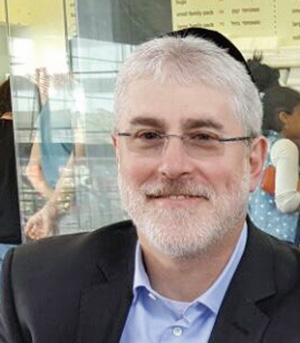
Change is one of those words that everyone seems to have an opinion on, for better or worse. We can all agree it is inevitable and takes place whether we like it or not. It is also a process. As we approach the Jewish New Year, return, repentance, refining our personality and other similar themes are discussed in multiple books, lectures and in both public and private conversations among intelligent lay persons. In addition, it is a serious time for contemplation, reflection and soul searching. Or, at a minimum, it should be. The focus of this article is on the power of change, identifying what it means and how to make significant improvements in our lives. Rabbi Yisroel Salanter, the founder of the Mussar movement, in a well-known maxim stated, “it is easier to learn the entire Talmud, than to change one character trait.” This assertion by the great sage was not made to discourage others from changing themselves or the direction of their lives, but cautionary in that the task was highly challenging and arduous in nature.
If we try and define change within the context of modern psychology, we will be left with a multiplicity of meanings with little consensus. They can include symptom reduction, increased insight, improvements in self-esteem, heightened self-control and a sense of well-being. There is nothing inherently incongruent with these definitions and those of our own Jewish tradition. However, having said that, the Torah delineates a more spiritual and religious definition of change. Rav Hirsch emphasizes “sanctifying of the physical world”—that change is defined by elevating the physical world around us. Others argue that change is concerned with not simply elevating our surroundings, but the refining and returning to our true selves. Both definitions bear merit and take note that change is about becoming better and different, not simply being satisfied with “the status quo.” This auspicious time of the year morally obligates all of us that are seriously minded and grateful for the opportunity that presents itself to be aware that being open to change is a great gift.
So, now that change has been more clearly conceptualized, the goal still remains to outline some guidelines that can facilitate the process itself. I should mention that at the core of change is renewal. It does not appear coincidental to me and hopefully not to the keen observer that the word “new” is embedded in the root of renewal. A new year brings with it, not just robotic or reactive going through the motions, but reflective and then active efforts for authentic revisiting, renewal and if necessary altering some profound desires in diverse areas of our lives while being concerned for others. We all have our personal and collective yearnings, deep within us, for individual, relational and societal betterment.
The task, at first glance, can be a daunting one. A good beginning is asking the question, how does one actually implement change and attempt to return to that more sincere and authentic self? These are some suggestions, not directives, that may offer a path and some guidance to follow during this awe-inspiring time.
Focus on small victories, not a complete overhaul of one’s being. Change is a process, as mentioned earlier, an evolving one. Give yourself credit for modifying the small stuff too. Be aware that effort counts, even if the outcome is only partially achieved.
Think of others first in the same situation and have them in mind before yourself.
Do not despair and be self-berating. Old habits can be hard to break, but can be replaced with new, more-adaptive and healthier ones.
Be honest with yourself about the various strengths and areas in need of improvement.
Look at Rosh Hashanah as a new beginning, not simply a time for judgment and punishment or reward.
Remember that this time of year is about joy, love, mercy and kindness.
Show gratitude for the blessings of life itself, family, friends and acquaintances.
Make a concerted effort to be happy. Simcha brings its own rewards.
Do not compare yourself with others, whether it be fiscally, physically or in any other way. No two people are alike.
Pray for the welfare of Eretz Yisroel, fellow Jews and humanity at large.
Be sensitive to those less fortunate and struggling whether it be psychologically, medically and in other areas of life.
Do not be afraid, even if you feel undeserving, to ask God, in highly specific and concrete terms what it is you want and need this year. In other words, being bashful does not promote changing one’s life and those you care about for the good.
Finally, focus on changing yourself, not others. Try to love yourself and fellow human beings unconditionally. Avoid being judgmental and critical. This does not preclude self-improvement and having expectations from others.
Change, especially during this sensitive and inspiring time of year, carries great moral responsibility and also tremendous potential for growth. It is in these opportunities for “becoming” and making small but steady adjustments in who we are, not just being static and self-satisfied, where true change and renewal take place. The Lubavitcher Rebbe remarked that it only takes a small amount of light to guide us through the darkness. Change also requires consistency over time. The change need not be overarching, but small and focused. Remaining optimistic and positive are key ingredients to change. Resilience and fortitude are important factors as well. In summary, change, albeit difficult and demanding, is always possible and within reach. So, never give up striving for your optimal potential and being hopeful about the road ahead.
Wishing all of you a year of health, happiness, prosperity and meaningful sustained change.
Michael Portman, DPhil, LCSW, ACT. He can be reached by email at [email protected].










